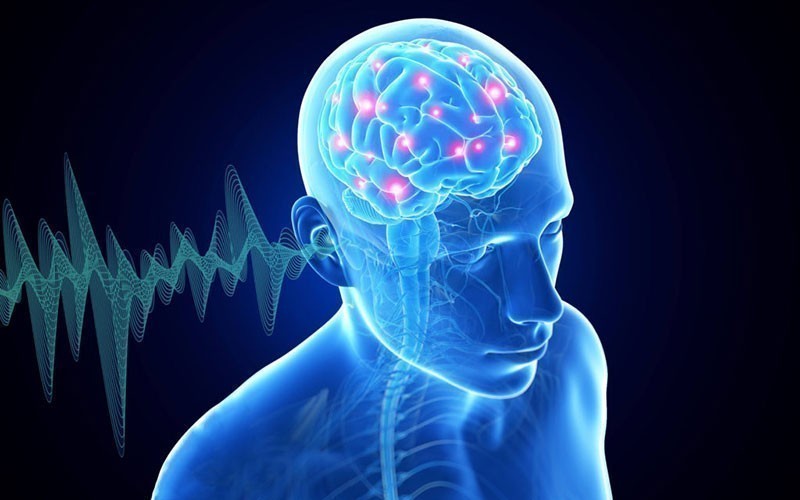In the recent years, more and more people have different health problems and many of them are said to “come from the head”. This is another unofficial diagnosis that can bring doctors a relief for many “complicated” cases and leave patients to seek for themselves to solve their problems and illnesses. Within the years, attention has been paid to the leaky gut.
Question 25 years old (for me)
For a long, long time, I have been questioning whether it really is “all in our head,” and this text is the result of that search.
25 years back …
One of the things I learned over the course of 25 years through Eastern Diagnostics was that “what is our condition in the intestines is also in the brain”, i.e. that intestine movement affects mental clarity, mood, memory, and overall mental activity.
In the recent years, more and more scientific researches has been published that detail the above-mentioned Eastern Diagnostic claims. And not only that, the results of the experiments that have been made imply a new, diametrically opposite opinion that reads: A large percentage of the physical/mental problems we have is in our intestines!
It may still be early to say that the condition of the intestines is responsible for ALL of our health conditions (of course, with the exception of congenital disorders and acquired traumas), but it is definitely the time to be presented in more detail with microbiome (or as it is called “gut brain”), as well a disorder that significantly affects many segments of our health, and that are permeable intestines.
Learn more about microbiome
In our intestines there are about two kilograms of intestinal flora, various microorganisms – bacteria, fungi, viruses, protozoa. This large eco system is called microbiome and is more and more often treated in scientific circles as an organ. Many of these microorganisms are vital to the body: they destroy toxins, produce certain vitamins and improve the functioning of our immune system. Disturbance of the intestinal flora balance causes many problems – from mild symptoms to serious health problems.
The results of the study show that the impact of microbiome on our health and happiness is the same as the influence of genes (some researchers believe that this effect is far greater). In addition to influencing mental health, microbiome effects also affect body weight, immune function, various inflammation in the body, allergies, metabolism, appetite, etc. But for this story, some new text will be needed, and therefore I will now deal with the health of the intestines and how it affects the human organism – and what was briefly explained by microbiology.
How the leaky gut originates
Problems with the intestines (usually the so-called leaky gut) are associated with a large number of common diseases such as depression, mood disorders, schizophrenia, Parkinson’s disease, memory loss, and other brain damages.
The leaky gut is formed when the walls of the intestine become inflamed and porous allowing unwanted food, bacteria and various toxins to penetrate the bloodstream that burdens the immune system and causes inflammation throughout the body. In most cases, the emergence of this condition is associated with poor dietary habits, the use of various drugs that impair intestinal flora (primarily antibiotics) and increased stress exposure.
How to know if you have a leaky gut
If you have mild to moderate gastrointestinal symptoms, such as bloating, gases, various inflammation in the body and food sensitivity, check the condition of your intestines. The leaky gut also causes a state of frustrations in the brain, leading to depression or “foggy” conditions in the head and poor concentration.
Systemic inflammation caused by the leaky gut can affect the level of energy, cause fatigue, weakness in the muscles or slow and long-term injuries. Also, many people have leaky gut and no symptoms listed, especially if they are healthy, i.e. if they are on a non inflammatory diet. Whenever someone complains about “brain fog”, persistent depression, chronic systemic inflammation, autoimmune disorders should be checked in the condition of the intestines – even if there are no symptoms associated with digestion.
Treatment of leaky gut
Although various factors contribute to the leaky gut, nutrition is the most important and can significantly help to overcome this condition. Treatment of leaky gut consists of a change in diet and nutrition that reduces intestine inflammation and repairs the intestinal membrane.
It is necessary to strictly adhere to the diet. For many, this can be difficult and may feel deprived of all those pleasures, especially at different celebrations. However, people who are struggling with chronic autoimmune diseases, whose quality of life is seriously endangered – have found that discipline in nutrition is a small price to be paid for achieving better health.
The length of the program varies and the average program for treating leaky gut with food lasts from 30 to 60 days. However, if you have an autoimmune or celiac disease, it is best to stay for a long time within a strict diet using dietary supplements to achieve complete healing.
People with autoimmune disorders will, to varying degrees, struggle with leaky gut throughout their lives.
There is a need to be aware of the fact that: There is no way or a predictable time limit for the treatment of leaky gut! If you do not have obvious symptoms, the only way to be sure is laboratory testing before and after the treatment program for leaky gut. Such tests are already available in European countries. Not complicated nor expensive.
Diet for leaky gut
This diet involves regular meals to make sure that blood sugar is stable because it is the primary goal of avoiding stress that follows the low blood sugar level. Food listed in the following should be dismissed if a person wants to solve the problem of leaky gut.
Avoid the following foods:
- All sugars and sweeteners, even honey;
- Fruits containing high sugar: watermelon, mango, pineapple, dried grapes, fresh grapes, canned fruits, dry fruit, etc.
- Tomatoes, potatoes, and mushrooms;
- Cereals: wheat, oats, rice, barley, buckwheat, corn, cinema, etc.
- Dairy products: milk, sour cream, cheese, butter, etc.
- Eggs or foods containing eggs, mayonnaise;
- Soybeans: soybean milk, soy sauce, soybean cheese (tofu), soybean meat (tempeh) soy protein, etc.
- Alcohol
Lectins (sugar-binding proteins) are the main causes of leaky gut and are found in nuts, beans, soybeans, potatoes, tomatoes, eggplant, peppers, peanut oil and soybean oil, instant coffee … Also, many instant coffee brands have products that contain gluten. It is important to eliminate them to make sure they are not a trigger of autoimmune reactions in the body.
What to eat?
When you look at the list of what needs to be dismissed, the question arises, what to eat. In fact, you will eat in the way people have been fed through history – there are plenty of foods that are not industrial.
Recommended to eat:
- Vegetables, (except tomatoes, potatoes and mushrooms): asparagus, spinach, lettuce, broccoli, cauliflower, carrot, celery, artichokes, garlic, zucchini, pumpkin, cucumber.
- Fermented foods: sour cabbage, sour ginger, fermented cucumber, coconut yogurt, kombucha, kefir. You will probably have to do this yourself or find a brand that does not use sugars and additives for fermentation. Also, seek information about anaerobically fermented foods in hermetic containers. These fermented products do not contain histamine in which people react (in the form of rash, digestive disorders, inflammation …);
- Meat: If you use meat in your diet, find a safe source of quality fish, chicken, turkey – meat from animals that are fed with natural food without additives and hormones. In addition, today’s breeding uses foods full of antibiotics which is also a major problem for your leaky gut;
- Fruits with low content of carbohydrates: apricots, plums, apples, peaches, pears, cherries and berries, to mention only some;
- Coconut: coconut oil, coconut butter, coconut milk, coconut cream;
- Olives and olive oil;
- Herbal teas.
Support is all around us
The diet mentioned above is not easy.
On the other hand, today there is a great support on the Internet. There are online communities for many variations of this diet. These include: Paleo Nutrition, LCHF Nutrition, SCD Nutrition and others. Many people have accepted a version of this diet and are happy to help and provide support to others.
Therefore, it is best to seek professional medical care, those who deal with microbiome and the treatment of leaky gut.
How to positively affect microbiome and indirectly leaky gut
In addition to probiotics that are recommended for dietary changes, a system of “faecal transplantation” has already been developed in the world, which is complex but is already being applied in Australia and America. In faecal transplantation there is one trap. Human microbiome is partly influenced by genes and partly by external factors – diet, age, sex, stress … so that after transplantation, people need to change their lifestyle to make the effect permanent.
What else can help?
For those who unsuccessfully attempt to reduce weight or solve another dietary disorder, it is recommended to consider their subconscious beliefs and feelings about diet and their own body. This work can be very useful and productive. If you are skilled in impartial self-observation, many of you will be able to find, change and solve it yourself.
For those to whom it is unknown and difficult – there are various ways and techniques (EFT, Theta healing, psychoanalysis …) to free themselves from limiting subconscious beliefs and to solve other blockades that concern nutrition and physical forms. When subconscious beliefs are removed, many are pleasantly surprised to see that their desire for food is significantly reduced and that the immune reactions that have been a problem for years have disappeared.
Whatever you choose, the most important thing is that you have patience and actively participate in the work to improve your microbiome and eliminate the symptoms and problems that are bothering you.

![propustljiva-creva-mikrobiom[1]](https://pogledi.net/wp-content/uploads/2018/11/propustljiva-creva-mikrobiom1.jpg)

